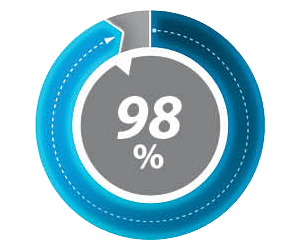| Company | Merck Sharp & Dohme Corp. (MSD) A Global Pharmaceutical Company 1250 employees |
| Training | Employee Development Plan Through Video Games |
| Skills Developed | Negotiation, Communication, Conflict Resolution, Time Management, Change Management, Organizational Effectiveness, Personal Productivity, Initiative, Creativity, Decision-Making and Customer Service Skills |
| Program | 2010 – Present 760 well-trained employees It represents a 40% of global training inside MSD |
| Serious Games | Merchants, Negotiation and Conflict Resolution Serious Game Triskelion, Time Management & Personal Productivity Serious Game |
Overview
Merck Sherp & Dohme Corp. (MSD) is a multinational leader in global health and the first success case for a training model that currently enjoys the trust of over 600 corporate customers all over the world.
This success story demostrates that the development of soft skills (negotiation, communication and time management) is effective and, above all,necessary to address new market challenges with the right tools and knowledge.
Challenges
- To guarantee effective development of these soft skills: communication, negotiation, productivity and time management.
- To overcome the problem of lack of engagement with other training solutions.
- To develop quality content with guaranteed applicability to the tasks employees perform every day.
- To achieve unified training, with a homogeneus and consistent message, but within a workforce with great geographic dispersion.
Solutions
- To find an instructional design that allowed employees to put the skills being taught into practice while receiving personalized feedback.
- To have high-quality content equivalent to a two-day classroom training course.
- To guarantee effective learning that placed employees in situations similar to those encountered in their day-to-day work.
- To use gamification techniques to improve the engagement and motivation of the employee during the training program.
Results

AVERAGE SCORE OVER 5

COMPLETION RATE

APPLICABILITY RATE




